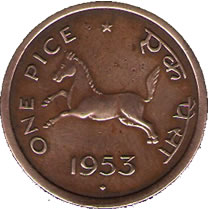This blog has been chosen as one of the Top 100 Language Learning Blogs – a list which includes links to other language-related blogs that might interest you.
Many thanks to those who chose this blog.
This blog has been chosen as one of the Top 100 Language Learning Blogs – a list which includes links to other language-related blogs that might interest you.
Many thanks to those who chose this blog.

Here’s a recording in a mystery language.
Can you identify the language, and do you know where it’s spoken?

Today I came across an interesting Russian idiom in the book I’m reading (Moon Seed, by Stephen Baxter): Ни пуха, ни пера (Ni púkha, ni perá). It means literally “neither fur nor feather” and is used to wish someone good luck.
The phrase was originally used by Russian hunters in a sarcastic/ironic way. The feathers referred to birds, and the fur to animals, so they were saying that they hoped that the other hunters wouldn’t catch any birds or animals.
The usually reply to this phrase is К чёрту (K chëtu), which means “to the devil” or “go to hell”, and is saying “the hell I won’t”.
Source: http://www.linguajunkie.com/learning/russian-proverbs-sayings
An equivalent of this phrase in English is “break a leg”, which is traditionally said to actors to wish them luck before they go on stage, especially on the opening night. According to theatrical superstition it’s bad luck to wish someone good luck.
This phrase first appeared in writing in May 1948 in the The Charleston Gazette as:
“Another [superstition] is that one actor should not wish another good luck before a performance but say instead ‘I hope you break a leg.”
There is a similar phrase in German, Hals und Beinbruch (break your neck and leg), which was apparently used by the Luftwaffe during WWII. This might come from the Hebrew blessing hatzlakha u-brakha‘ (success and blessing), which might have made it’s way into English via German and Yiddish.
Source: http://www.phrases.org.uk/meanings/break-a-leg.html
Are there idiomatic ways to wish people luck in other languages?
For some reason I thought I’d look into the word trump today. It has a number of meanings:
1. trump (noun): the suit, in a game of cards, that outranks all others; a playing card of that suit; something that gives one an advantage, especially one held in reserve.
Etymology
From triumph, from the French triomphe (triumph), from the Latin triumphus (triumph, victory), via the Etruscan triumpus from the Ancient Greek θρίαμβος (thríambos – a hymn to Dionysos).
2. trump (verb): to fabricate, devise.
Etymology
From trump (to deceive, cheat), from the Middle English trumpen, from the Old French tromper (to deceive). Of uncertain origin. Perhaps from the practise of quacks and mountebanks using a trumpet or horn to attract the public, who were then cheated into buying things.
Related French expressions:
– tromper = to deceive, lead astray, mislead; to trick, dupe; to cheat on one’s significant other; to distract oneself from.
– se tromper = to make a mistake
– se tromper de = to mix up
– baillier la trompe = to blow the trumpet, act the fool
The expression trumped up (false, concocted) was first recorded 1728.
3. trump (noun): a trumpet; flatulence; the noise made by an elephant through its trunk.
Etymology
From the Middle English trompe (trumpet), from the Old French trompe (horn, trump, trumpet) from the Frankish *trumpa/*trumba (trumpet).
Sources: Online Etymology Dictionary and Wiktionary

Here’s a recording in a mystery language.
Can you identify the language, and do you know where it’s spoken?

What does romance have to do with horses?
Well, the word romance has a number of meanings:
– A story relating to chivalry; a story involving knights, heroes, adventures, quests, etc.
– An intimate relationship between two people; a love affair.
– A strong obsession or attachment for something or someone.
– Idealized love which is pure or beautiful.
– A mysterious, exciting, or fascinating quality.
– A story or novel dealing with idealized love.
– An embellished account of something; an idealized lie.
– An adventure, or series of extraordinary events, resembling those narrated in romances.
– A dreamy, imaginative habit of mind; a disposition to ignore what is real.
– (music) A romanza, or sentimental ballad.
The first meaning provides the connection to chivalry, a word which comes from Middle English chivalrie (quality of being knight), from the Old French chevalerie (knighthood, chivalry, nobility, cavalry), from chevaler (knight, horseman), from the Medieval Latin caballarius (horseman, knight), from the Vulgar Latin caballus (horse), which meant ‘work horse, pack horse or nag’ in Classical Latin, possibly from the Gaulish caballos (horse), or from an Old East Iranian dialect.
The word romance comes from the Middle English romauns, roumance, from Anglo-Norman and Old French romanz, romans (the vernacular language of France, as opposed to Latin), from the Medieval Latin rōmānicē, from the Vulgar Latin rōmānicē (in the Roman language), from the Latin rōmānicus (roman) from rōmānus (a Roman).
Sources: Wiktionary, Online Etymology Dictionary, Degruyter.com

With a title like that, you might be expecting a post about animals, but in fact it’s about slang terms for money – a gorilla is £1,000, a monkey is £500 and a pony is £25.
These names apparently come from old Indian banknotes and coins: the 25 Rupee coin had a pony on it, and the 500 Rupee note had a monkey on it, and British soldiers returning from India brought back such notes and slang terms with the to the UK. A gorilla possibly got its name because it’s two monkeys.
General slang terms for money in the UK include:
– cash – from Middle French caisse (money box), from Old Provençal caissa, from Old Italian cassa, from Latin capsa (box, case), from capio (I take, seize, receive), from Proto-Indo-European *keh₂p- (to grasp)
– bread – from the rhyming slang bread & honey (money)
– dough – an extension from bread
– dosh – possibly a combination of dough and cash
– readies – from ‘ready money’
– spondulicks – unknown origin
– (filthy) lucre – from Latin lucrum (profit)
– moola(h) – possibly from the Romani mol (have value, be worth), or the French moulin (mill)
– wonga – from Romani wangar (coal), from Sanskrit अङ्गार (áṅgāra, charcoal, coal), from Proto-Indo-Iranian *Hangāra-, from Proto-Indo-European *h₁ongʷl-.
Do you use any of these, or other slang words for money, and/or for specific amounts of money?
More on money slang:
https://en.wikipedia.org/wiki/Slang_terms_for_money
http://www.aldertons.com/money.htm
https://en.wiktionary.org/wiki/Wikisaurus:money
This weekend I went to a friend’s wedding near Milton Keynes, and stayed in an AirBnB in Bletchley on Saturday night. In my review of the AirBnB I said that it was “within walking distance” of the centre of Bletchley. After writing this, I started thinking that the phrase walking distance probably means quite different things to different people.
I walk a lot – at least 3 or 4 miles a day, so ‘within walking distance’ to me means up to 4 miles, or further. I walk to get around, to keep fit, and also because I enjoy exploring places on foot.
On Saturday afternoon I decided to walk from Bletchley to Newton Longville, the village where the wedding reception took place. On the map the distance was 3 to 3.5 miles, depending on the route. However, part of the route went through an area where a lot of new houses are being built, and some of the roads and paths were blocked off, and I got a bit lost. After asking for directions I found the right road, and ended up walking 5 or 6 miles in total. I got there in the end and had a wonderful time, and got a lift back with the bride’s granddad.
What does “within walking distance” mean to you?
Or do you use another phrase?
(The photo is the fabulous lego-based wedding cake)

Here’s a recording in a mystery language.
Can you identify the language, and do you know where it’s spoken?
An episode of Word of Mouth I listened to recently discussed the language of directions, and how in some languages directions are absolute rather than relative. So you don’t have a right hand or left hand, for example, but a north or south hand, or an east or west hand, depending on which way you’re facing. In some languages directions are relative to a feature in the local landscape such as a river or mountain.
Indonesian is one language they mention that uses absolute direction, at least outside the major cities – in Jakarta they use the equivalents of left and right (kiri & kanan).
The way people think about time also differs in different languages. In Western languages we generally think about the future as ahead of us and the past behind us, but in Aymara the past in in front of you and the future is behind you. This can also be seen in gestures – when talking about the past, Aymara speakers point in front of them.
So if you speak a language which uses absolute directions you have to be always aware of which way is north, or of the location of the landscape feature on which the directions are based. Apparently this is something you can learn – one of the people on the programme spent time with people in northern Australia who use absolute direction, and after a while she found that she was starting to be aware which way was north most of the time.
They also discuss place names in England and how they refer to direction in different ways. There are many ways, for example, to indicate what a place is near: Newcastle-Upon-Tyne, Newcastle-under-Lyme (under used to mean ‘hard by’), Weston-super-Mare, Goring-by-Sea, Southend-on-Sea, Aston juxta Mondrum and Wells-next-the-Sea
Are direction words used in interesting ways in your language or dialect?